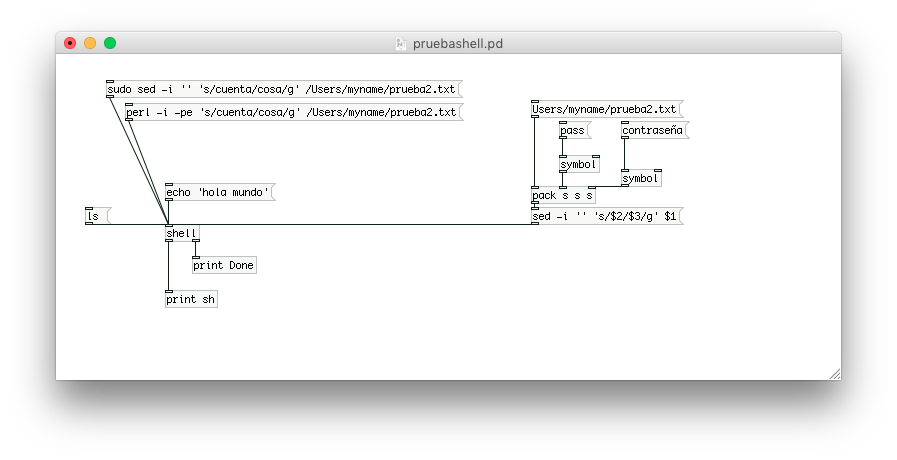Does any command work in the [shell] object that you are using? If you run something simple, like 'ls' or 'pwd' will it output the file list of the directory? If so, then there could likely be a formating issue with the text that you are sending to the object. The way that puredata handles sending certain symbols and characters through messages can sometimes throw a command askew when translating to bash. To make things harder, the front slash that is typically used as an escape symbol to send symbols as literals is not allowed in messages within pd... So if the [shell] object is functional, but your particular command just doesn't seem to want to work properly, then you can try the following:
1 - make use of objects that convert text in messages to and from symbols, like [makesymbol] [cyclone/tosymbol] [cyclone/fromsymbol] [s2l] [l2s] etc.
2 - try sending commands to shell via [text] or [coll].
3- when all else fails, or a script is just too complex or uses many odd characters, open a code editor like kate (or textmate on mac,) and type the code in there. Try running it in a terminal to make sure it works. Save the file, and then in terminal run
sudo chmod +x "/path/to/file/filename"
enter your password and now that file will be marked by the OS as executable. You can call it from the [shell] object by simply sending it the path to the file, or cd <path>; ./<filename>
If your script requires variables that change in pd, like $1 $2, then you can set that up in your script by defining variables and then sending those values as in separate messages. for example, in your code, you could start by defining a variable like
foo=0;
then in pd
[nbx]
|
[foo=$1(
|
[shell]
After you send the change in value to the variable, call the script again and it will output with the updated values.
In sticky situations in shell, this trick has saved the day for me many times. Hope that helps.







